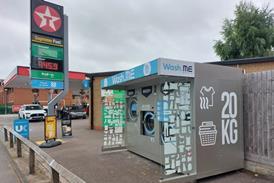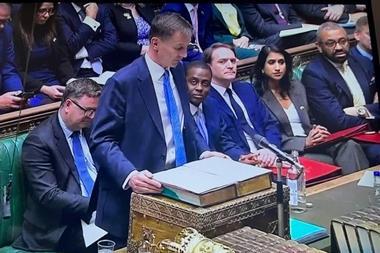Into the darkness: could soaring energy prices mean the lights go out on some forecourt businesses?

Before HRH Queen Elizabeth II passed away, there was only one story in the media that dominated everything else: the increased cost of gas and electricity predicted for the coming autumn and winter.
Naturally, the focus tended to be on the ‘human interest’ side of the story; not only the least well-off, but now ‘middle-earners’ saying that they simply won’t be able to afford the cost of heating their homes, providing hot water and using cooking appliances. The rate of general price inflation hit 10.1% in July: some economists are predicting it to rise to between 18% and 23% by early 2023, once the energy price rises feed through into the calculations. There is the obvious problem that when a sizeable proportion of consumers find that they are barely able to afford the basics of life – shelter, warmth and food – they will not be able to ‘consume’ anything that isn’t essential; that would have a dire impact on all types of retail activity.
Usually, the prospect of something as serious as this scenario would have elicited some sort of government response – typically in the form of various promises to ‘do something’ in the coming months but unfortunately, the government had effectively ceased to function while the Conservatives fought their internal war to decide who was going to succeed Boris Johnson. Now new PM Liz Truss has stepped in with an energy price freeze for businesses for six months.
But numerous Trade Unions are already talking about co-ordinated strike action in the coming months to try and win pay increases somewhere near to the current inflation rate.
Meanwhile, there are some calls from the TUC to increase the National Living Wage to £15/hour for all workers (currently the rate is £9.50/hour for those over the age of 23, with lower rates for younger employees). If they succeed, history suggests that all that will happen is that inflation rates will continue to be pushed higher, leading to more demands for higher pay .
While it’s all very well for the media to highlight how energy prices and inflation affect consumers, with a consequent effect on retail activity, they tend generally to ignore the fact that these same issues affect the retail industry directly and immediately.
Electricity bills
Looking at a set of management accounts for a typical (actually, quite small) independent forecourt, I noticed that their electricity bills for the six months between October ’21 and March ’22 averaged around £1,300 per month.
The retailer tells me that she’s expecting the bills for the equivalent period from this October through to next March to be approximately £2,500 per month. When the price cap ends the actual figure could be considerably higher.
But let’s stick with this projected increase of £1,200 per month, and let’s also assume that the site can achieve a gross margin on fuel sales of 10ppl (the true figure is actually somewhat lower). Simple arithmetic says that to cover the increased monthly cost of electricity (alone), the site will need to sell an additional 12,000 litres of fuel per month at the margin of 10ppl. The owner simply doesn’t believe that’s achievable in the current market – let alone if consumers cut back on visits to the forecourt in future. And for the same reason there’s little or no prospect of raising shop margins to try and make up for the additional costs – especially when suppliers themselves are already regularly raising prices.
Reducing usage
There may be some further scope for ‘efficiency’ in electrical appliances, but given that safety and security cannot be compromised, and that modern forecourt shops use a great deal of power, there’s actually not a great deal that the owner can do in the short term to reduce electricity usage. And we shouldn’t forget that if somehow volume could be increased, fuel pumps themselves do run on electricity…
Power costs are bad enough, but there’s also the issue of staff wages. While it’s unlikely that the TUC will get their way with the Minimum Wage, wage rates are increasing anyway – in part due to a shortage of available workers. Employers generally want to keep their best, most reliable and experienced staff – but to do so means that the employer must keep an eye on what competitors in the labour market are offering, and try to match it. Staffing levels are tied to opening hours and other on-site activities (supervising tanker deliveries, for example) and again there’s little scope on most sites for reducing them without compromising safety and security.
Not only is all of the retail sector faced with the prospect of a dark and cold winter affecting consumers’ already-stretched spending power, but retailers themselves face steeply rising costs just to stay open.
EKW Group provides accounting and payroll solutions for independent petroleum and convenience dealers, including fully outsourced accounting options:
01942 816512
ekwgroup.co.uk
































No comments yet